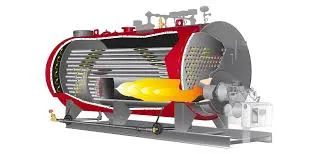
Dec . 12, 2024 19:28 Back to list
Understanding Pressure Levels in Hot Water Boilers for Optimal Performance
Understanding Hot Water Boiler Pressure Maintaining Efficiency and Safety
In residential and commercial heating systems, hot water boilers play a crucial role in ensuring that spaces remain comfortable and functional, especially in colder months. One of the key aspects of boiler performance, often overlooked, is pressure. Understanding hot water boiler pressure is essential for maximizing efficiency, ensuring safety, and prolonging the lifespan of the boiler.
What is Boiler Pressure?
Boiler pressure refers to the internal pressure of the water or steam within the boiler system. It is usually measured in pounds per square inch (PSI) or bar. The pressure of the water inside the boiler needs to be maintained within specific limits to ensure optimal performance. Generally, residential hot water boilers operate within a pressure range of 12 to 30 PSI. Excessively high or low pressure can lead to several issues that impede heating effectiveness and can even pose hazards.
Importance of Maintaining Proper Pressure
1. Efficiency Proper pressure ensures that the boiler operates efficiently. If the pressure is too low, the heating process will be inadequate, resulting in insufficient heat being delivered to the radiators or hot water outlets. Conversely, too high a pressure can lead to increased energy bills and waste of resources.
2. Safety Boilers operate under high temperature and pressure conditions. If the pressure exceeds safe limits, the risk of a boiler explosion or malfunction increases significantly. Pressure relief valves are critical safety components designed to release excess steam and prevent pressure build-up. Regular maintenance can ensure these valves work effectively and safeguard the system.
3. Longevity Maintaining the correct pressure can help extend the lifespan of the boiler. High pressure can cause wear and tear on components such as pipes, joints, and seals. Monitoring and controlling boiler pressure can prevent premature failures and costly repairs.
hot water boiler pressure

Common Pressure Issues
1. Low Pressure This can occur due to leaks in the system, air trapped in pipes, or inadequate water supply. Symptoms of low pressure include inconsistent heating, slow response times, and, in some cases, boiler shutdown. For troubleshooting, it’s important to check for visible leaks, bleed radiators to remove trapped air, or ensure that the boiler is filled with water to the appropriate level.
2. High Pressure High pressure might result from a malfunctioning pressure relief valve, excessive water supply, or a buildup of heat that the system cannot dissipate. Symptoms may include water hissing from pressure relief valves, fluctuation in water temperature, or even error codes on digital displays indicating pressure issues. Prolonged high pressure can lead to serious malfunctions, including system leaks and failure.
Monitoring Boiler Pressure
Regular monitoring and maintenance of boiler pressure are crucial. Homeowners should familiarize themselves with the boiler’s pressure gauge, typically located on the front panel. Safe operating pressure readings should be identified and the pressure should be regularly adjusted if it falls outside the recommended range.
In addition, a professional boiler technician should conduct periodic inspections and can flush the system, check all components, and address any anomalies in pressure readings. This proactive approach not only keeps the system functioning efficiently but also ensures the safety of everyone within the premises.
Conclusion
Understanding and managing hot water boiler pressure is vital for any heating system owner. By maintaining the correct pressure, individuals can enhance their boiler's efficiency, keep energy costs manageable, and avoid the dangers associated with pressure imbalances. Regular maintenance and awareness of system behavior are key components of successful boiler management, ultimately leading to a comfortable and safe environment in any building.
-
High-Efficiency Commercial Oil Fired Steam Boiler for Industry
NewsJul.30,2025
-
High-Efficiency Biomass Fired Thermal Oil Boiler Solutions
NewsJul.30,2025
-
High Efficiency Gas Fired Thermal Oil Boiler for Industrial Heating
NewsJul.29,2025
-
High-Efficiency Gas Fired Hot Water Boiler for Sale – Reliable & Affordable
NewsJul.29,2025
-
High Efficiency Biomass Fired Hot Water Boiler for Industrial and Commercial Use
NewsJul.29,2025
-
High-Efficiency Biomass Fired Hot Water Boiler for Industrial Use
NewsJul.28,2025
Related PRODUCTS






















